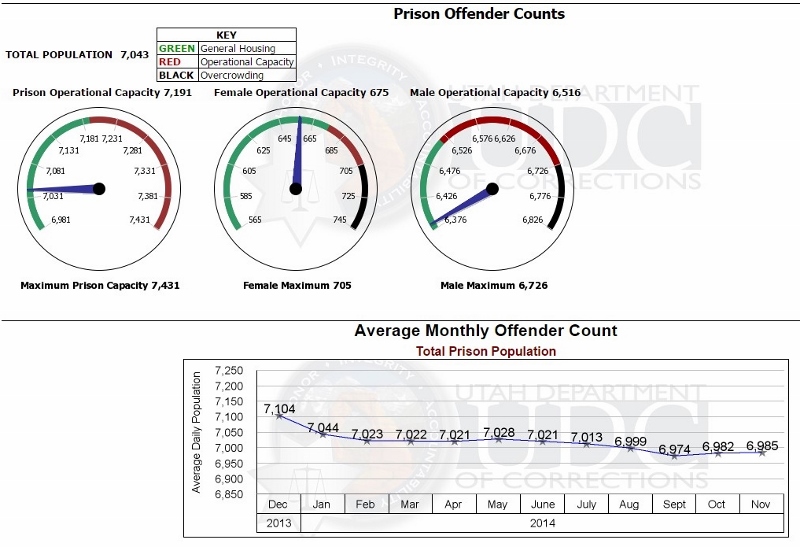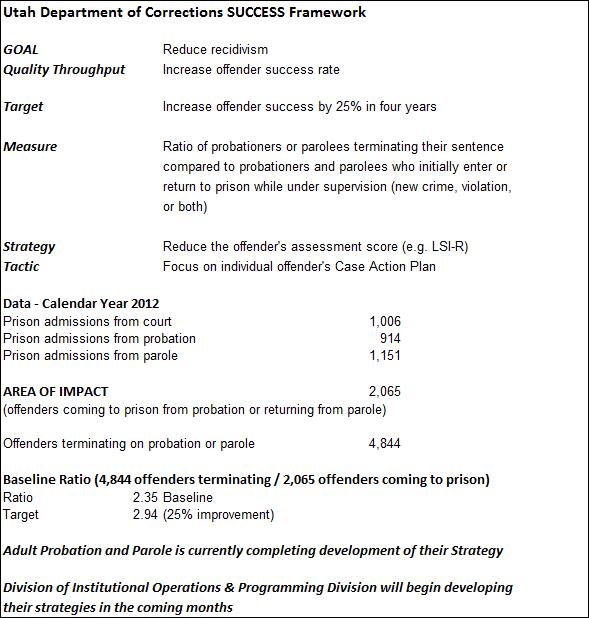The Department of Corrections is the adult correctional authority for the State of Utah. The department's primary mission is to protect the public. The mission statement of the department reads as follows:
"Our dedicated team of professionals ensures public safety by effectively managing offenders while maintaining close collaboration with partner agencies and the community. Our team is devoted to providing maximum opportunities for offenders to make lasting changes through accountability, treatment, education and positive reinforcement within a safe environment..."
During the 2015 General Session, the Legislature appropriated for Fiscal Year 2016, $317,599,700 from all sources for Corrections. This is a 2 percent increase from Fiscal Year 2015 revised estimated amounts from all sources. The total includes $282,567,200 from the General/Education Funds, an increase of 7.6 percent from revised Fiscal Year 2015 estimates.
In addition to statewide compensation and internal service fund cost increases, the following appropriation adjustments were made during the 2015 General Session:
The information below shows the current prison population count and trend for the past fiscal year.

The Department reports the following performance information  .
.
The following are performance measures tracked within this organization.
The Utah Department of Corrections houses approximately 6,900 inmates in 30 facilities. The majority of inmates are housed at two locations: the Draper and Gunnison prisons. The Division of Institutional Operations manages the inmate population in the secure facilities. In addition, inmates are housed in county jails in approximately 21 of Utah's 29 counties on a contractual basis (see Jail Contracting).
In addition to housing state inmates, the department develops and provides programs in order to manage the convicted offender's inappropriate behavior. Programs are designed to prepare and assist offenders in functioning as law-abiding citizens.
Once an inmate is released from prison, or if a person is sentenced to probation, they come under the responsibility of Adult Probation and Parole. The Adult Probation and Parole Division operates facilities throughout the state to supervise assigned parolees and probationers as they transition to the community.
Departmental funding consists primarily of General Fund money with a small percentage of Federal Funds. Dedicated Credits Revenue is mainly generated by Utah Correctional Industries, a for-profit business that teaches inmates new job skills while operating for-profit businesses.
COBI contains unaudited data as presented to the Legislature by state agencies at the time of publication. For audited financial data see the State of Utah's Comprehensive Annual Financial Reports.